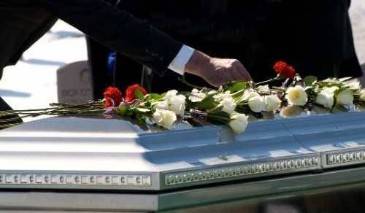The sudden loss of a loved one is devastating. Even more so when it’s unexpected and when someone else caused it. The emotional toll is great. The financial loss can be devastating to a family.
The History of Wrongful Death Laws
 Believe it or not, many years ago, when someone killed another, the surviving family members had no recourse for their loss. The theory was that any claims for a wrongful death died with the decedent. The family had no recourse for their loss.
Believe it or not, many years ago, when someone killed another, the surviving family members had no recourse for their loss. The theory was that any claims for a wrongful death died with the decedent. The family had no recourse for their loss.
To cure this problem, Colorado, like many other states, enacted laws providing for a legal recovery to families when a loved one died due to another’s actions. This type of claim is called a wrongful death claim. However, while Colorado provides for legal recovery for losses due to a loved one’s death, the recovery is limited and regulated by an intricate set of laws and procedures.
Restrictions Placed on Wrongful Death
In Colorado, only the personal representative of a decedents’ estate can bring an action for the wrongful death of a person. For example, if a husband and father is killed by someone’s negligent acts, likely, his wife would be named the personal representative of his estate. Only she can bring a claim for his death. She files the claim on behalf of herself and their children. There can only be one claim presented on behalf of all the heirs. If the wrongdoer ends up being found negligent, they pay damages to the estate. The damages are then allocated to all the heirs through the estate stipulations.
Unfortunately, the law can only award money damages. That makes these types of cases emotionally difficult for family members and their attorneys. No amount of money can compensate someone for the loss of a spouse, father, mother, or child. To make matters worse, Colorado has long limited the amount of damages anyone can collect due to the wrongful death of a loved one. Currently, the limit on damages is just below $500,000.00. Effectively, what this cap does is restrict how much compensation a person can receive for the death of a loved one and takes the determination of damages away from a jury.
Felonious Acts and Damages
This “cap” on damages can be overcome in certain circumstances though. If the act that led to the death was similar to a felonious act, the cap can be set aside. The analysis and procedure for setting aside the cap is complicated and requires a separate court determination aside from any trial. So, what is felonious conduct?
A person commits a felonious killing when their actions equate to manslaughter, second-degree murder, or first-degree murder. The lowest level is manslaughter. To meet this threshold, the wrongdoer must act in a reckless manner, which means the person acts consciously with a disregard to a substantial and unjustifiable risk that a death will occur or that circumstances exist that a death may occur.
Other Exceptions
However, a person does not need to be charged with a crime in order for the cap to be waived. In a wrongful death case, the court need only make a determination that the facts exist to find at least recklessness. The good news is that unlike in a criminal proceeding, the burden of proof is only by a preponderance of the evidence. That is to say that the court only has to find that it was more likely than not that the wrongdoer acted recklessly. This is a much lower standard than what is required in a criminal proceeding where the burden is beyond a reasonable doubt.
A court’s determination that someone acted feloniously in killing another person is critical in a wrongful death case. It allows the court to set the cap on damages aside. When this occurs, a jury’s verdict on damages is what the family receives instead of damages being capped.
If you’ve lost a loved one because of someone’s fault, you should contact an attorney with experience in handling these difficult cases. At The Bussey Law Firm, P.C., we’ve handled these difficult cases and have been successful in getting families the compensation they deserve. If you’ve lost a loved one because of someone else’s negligence, contact The Bussey Law Firm, P.C. either online or by calling (719) 475-2555 for a free consultation.
